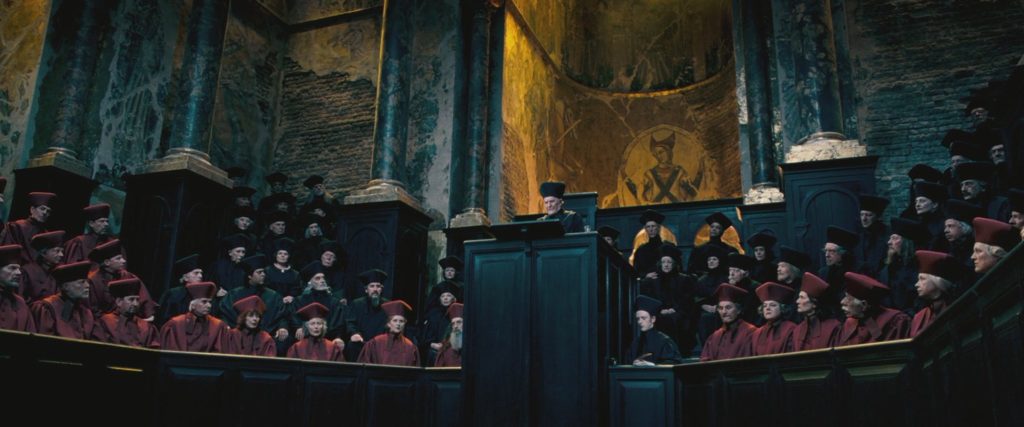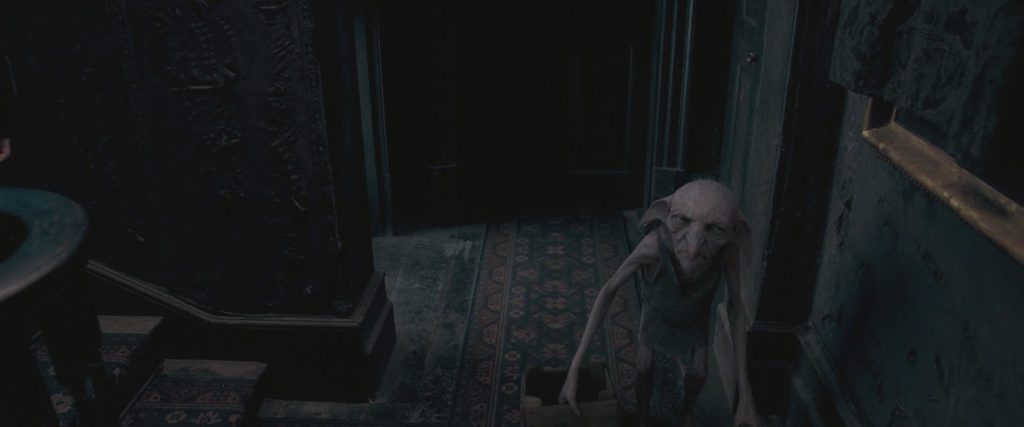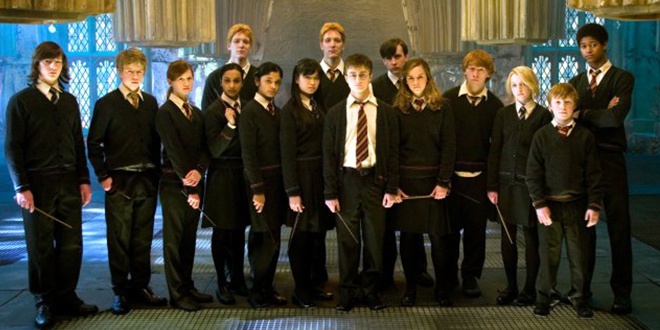Why “Order of the Phoenix” Is the Most Relevant “Harry Potter” Book Right Now – Part 2
In this second article in a two-part series (the first can be found here), in which I discuss the social relevance of Harry Potter and the Order of the Phoenix, I analyze how J.K. Rowling’s exploration of political corruption, racism, and social resistance inspired a generation of readers to partake in youth activism.
Its Portrayal of Abuses of Power
Order of the Phoenix illustrates how an absence of checks and balances in the political system can undermine democracy. Throughout the book, Fudge yields close-to-absolute power – and it’s a travesty that we don’t see him in Azkaban in Harry Potter and the Half-Blood Prince – as he maintains his smear campaign against Harry and Dumbledore to the detriment of public safety. Fudge’s incompetence partly facilitates the mass breakout from Azkaban.
Umbridge sending Dementors to attack Harry in Little Whinging, the practice of holding “a full criminal trial to deal with a simple matter of underage magic” (OotP 8), and Fudge influencing the Prophet and interfering at Hogwarts are just a few of the ways that the Ministry abuses its power in Order of the Phoenix. Furthermore, the educational decrees that the Ministry passes throughout the book are reminiscent of the executive orders signed under the current US administration.
Political corruption is not the only abuse of power that Order of the Phoenix addresses, though. It also depicts abuses of power by those in law enforcement. Police brutality is touched upon when the Ministry’s Aurors attempt to arrest Hagrid for no good reason and consequently attack Professor McGonagall.
Its Portrayal of Racism
The Fountain of Magical Brethren in the Ministry of Magic illustrates the hierarchical nature of the wizarding world. The fountain’s depiction of centaurs, goblins, and house-elves being subservient to wizards is troubling. In the aftermath of the fountain’s destruction, Dumbledore makes the following remark:
The fountain we destroyed tonight told a lie. We wizards have mistreated and abused our fellows for too long, and we are now reaping our reward
In Dolores Umbridge, Rowling constructs a deplorable character whose anti-Muggle sentiments and prejudices against nonhuman creatures epitomize the worst of humanity. The placement of Umbridge and Fudge in positions of power within the Ministry of Magic also personifies the existence of institutional racism within the wizarding world. Those who dissent against the Ministry’s pure-blood agenda are scorned – George notes that Fudge “always thought Dad’s a bit of a weirdo because of his Muggle obsession” (OotP 4).
In Harry Potter and the Goblet of Fire, Hermione forms SPEW, an organization dedicated to promoting house-elf rights, but Harry and Ron treat her campaign with indifference. During a conversation in Order of the Phoenix, between the trio regarding what they wanted to do after Hogwarts, Hermione says that she wants to do something “worthwhile,” such as taking “SPEW further” (OotP 12). Again, Harry and Ron do not show any enthusiasm or support for her cause at all.
Ultimately, this indifference results in Sirius’s death in Order of the Phoenix. Dumbledore states that “Kreacher is what he has been made by wizards” and that “indifference and neglect often do much more damage than outright dislike” (OotP 38).
Its Portrayal of Youth Activism
The Harry Potter series has inspired an entire generation of readers to be politically engaged and to stand up for what is right. In Order of the Phoenix, the members of Dumbledore’s Army resist the Ministry’s authority by empowering themselves through the knowledge of defensive spells. The formation of the DA was a direct protest against Umbridge’s Defense Against the Dark Arts classes. The book’s message is clear – don’t be complacent; fight back against injustice.
In the real world, youth activism is at the forefront of sociopolitical movements. From the Women’s March and the #MeToo movement to #BlackLivesMatter and the #MarchForOurLives, the Potter generation is putting the lessons that they learned from the series into practice.
Those in positions of power would do well to remember this:
Youth cannot know how age thinks and feels. But old men are guilty if they forget what it was to be young.




